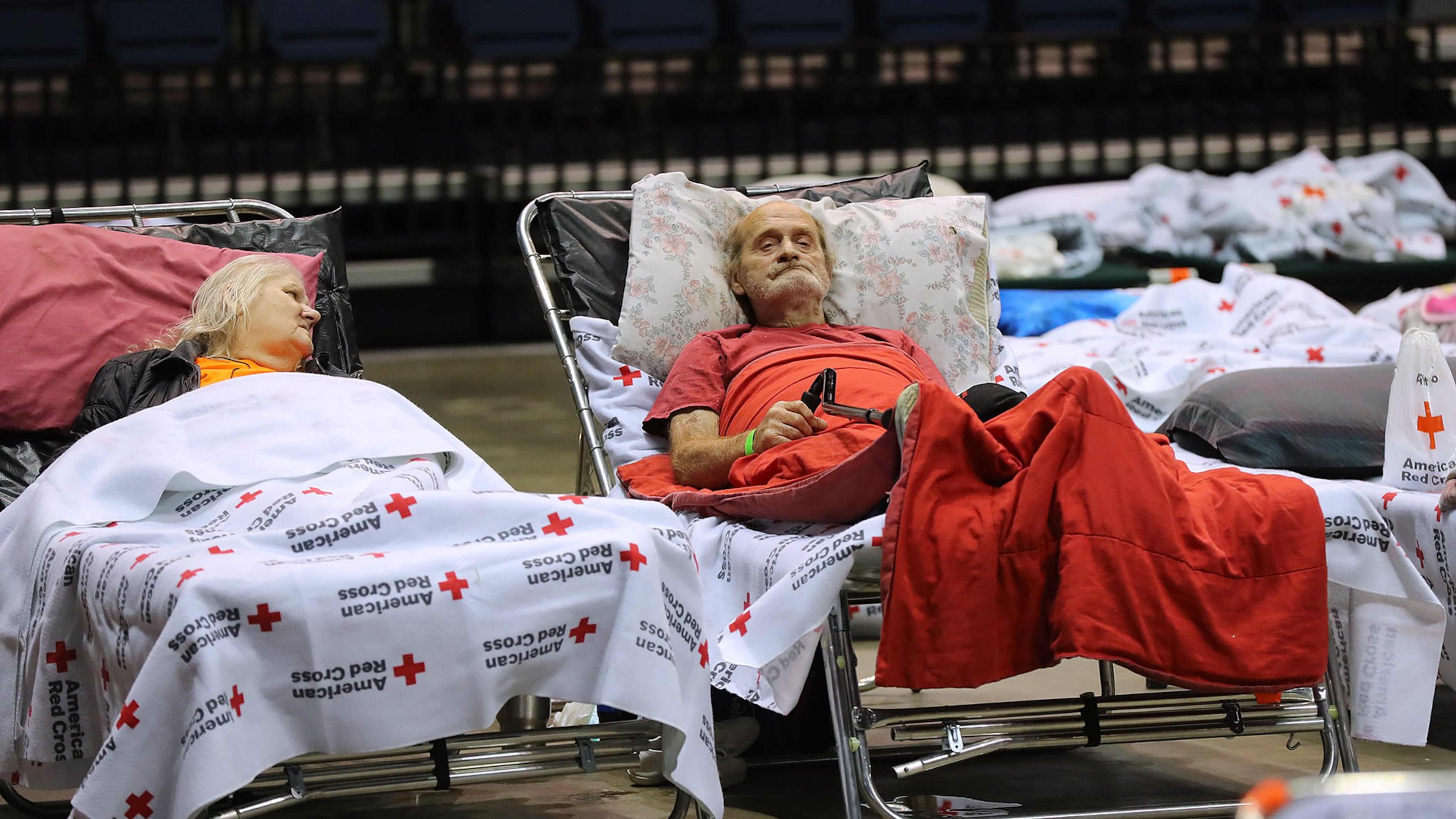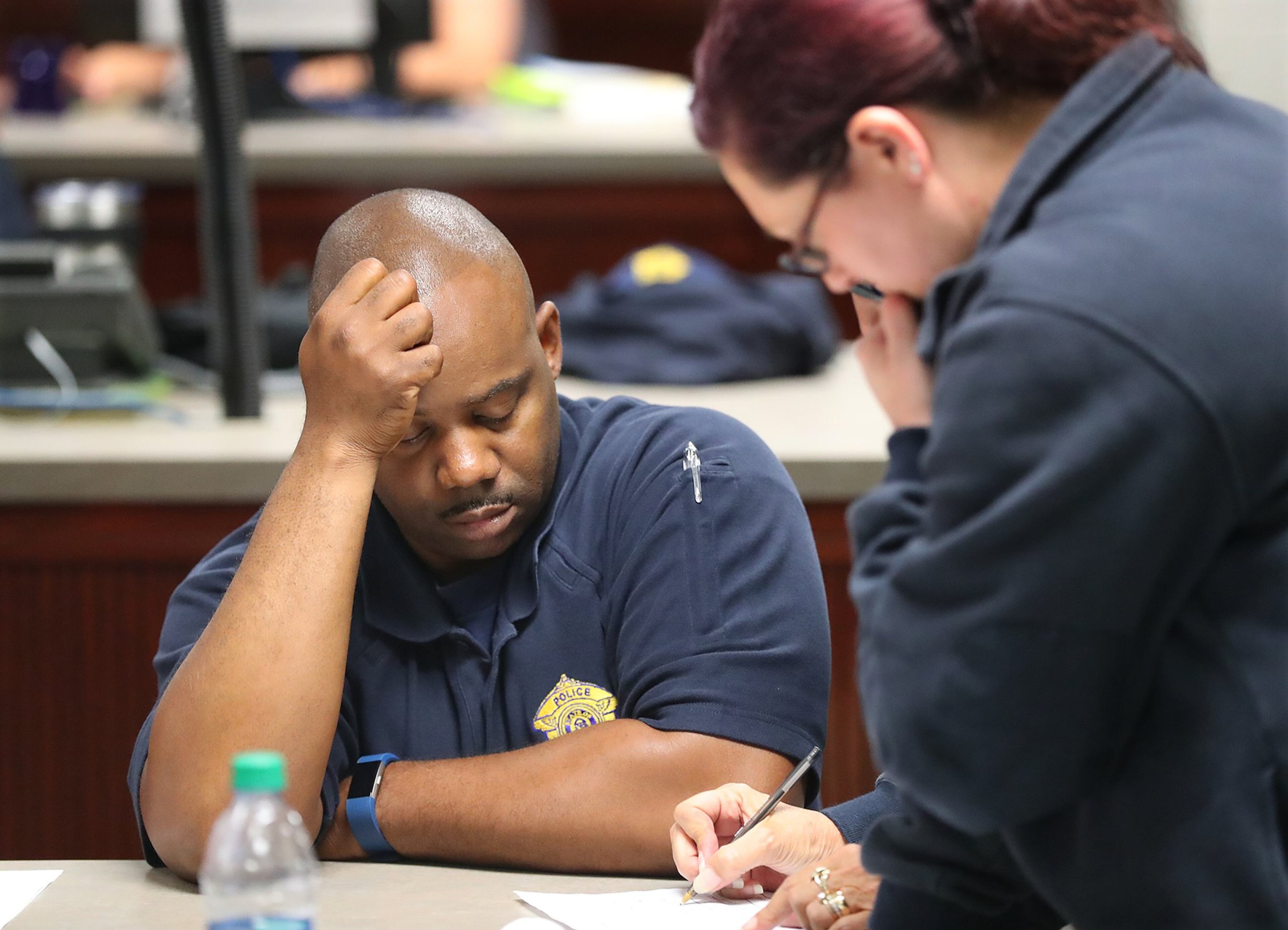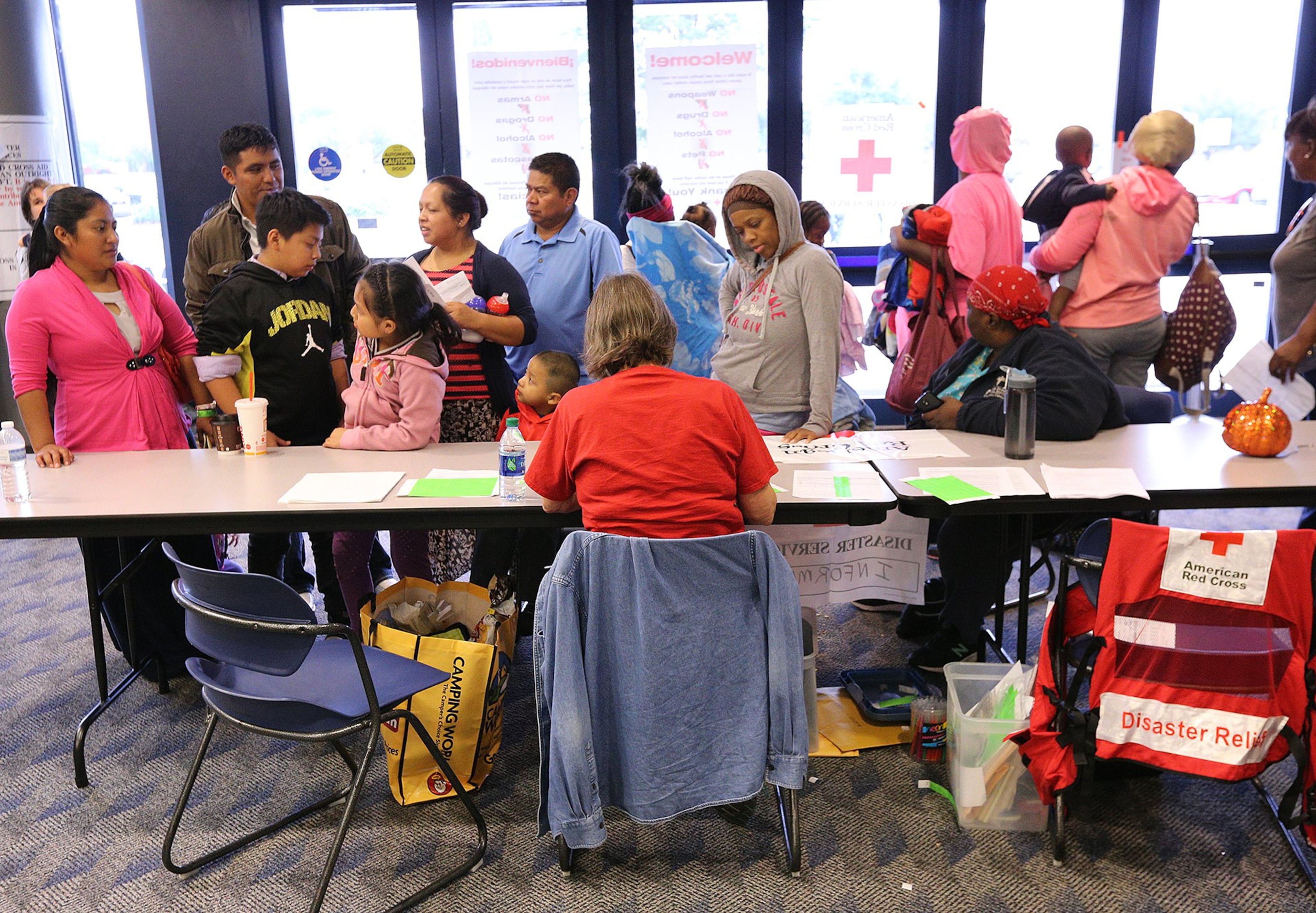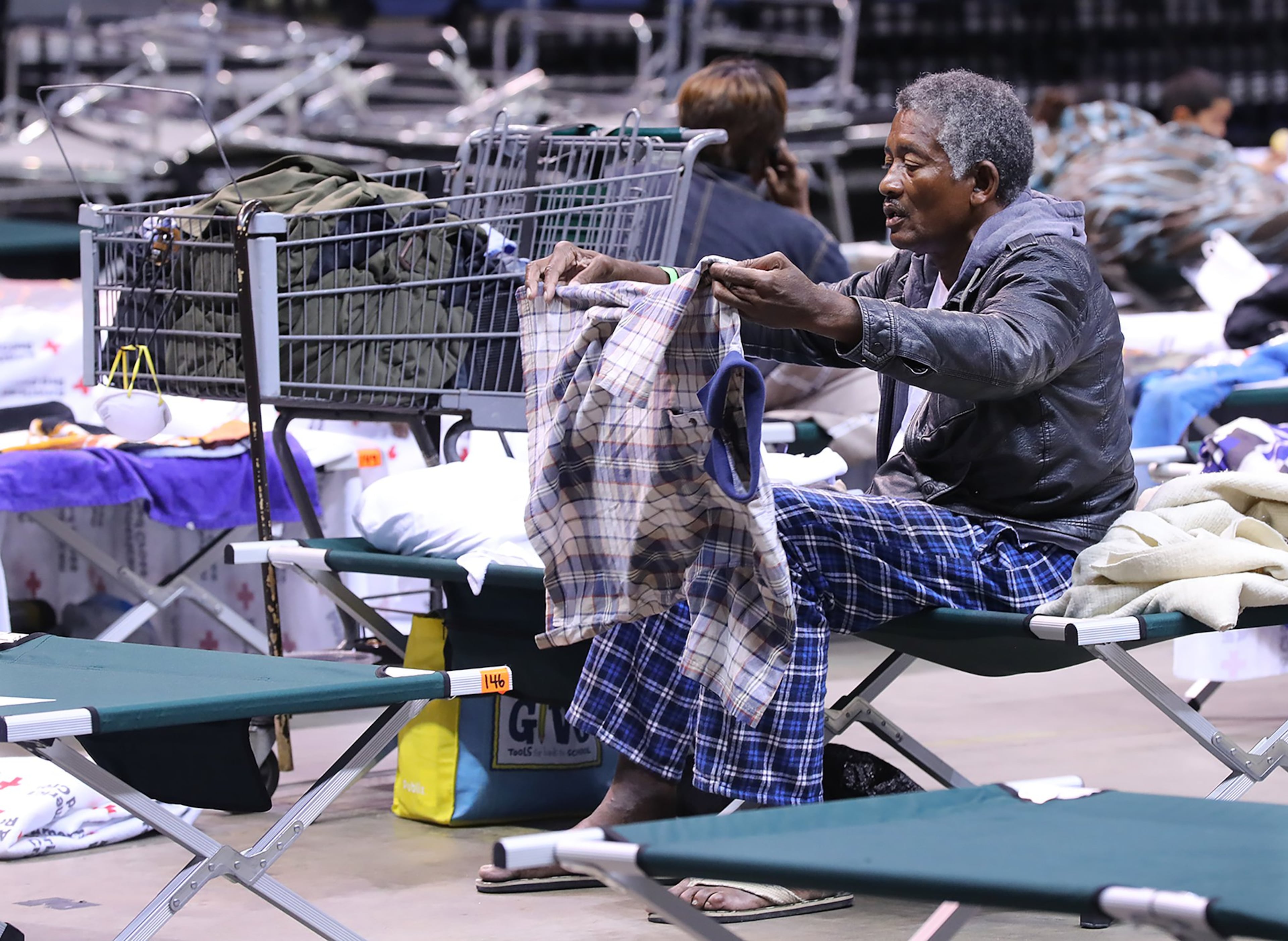Southwest Georgians brace for Irma and ask: Why again?

If residents here want to know about hazards of severe weather, they have plenty of examples to consider. This January, two rounds of tornadoes shredded homes and a massive mobile home park, killing four and leaving hundreds homeless. There, of course, was also 1994’s Tropical Storm Alberto, which caused flooding along the Flint River, killed 31 people in Georgia — several around this city — and unearthed hundreds of caskets, sending them floating away.
On Sunday, the city joined all of southwest Georgia in awaiting Irma. It’s a rare hurricane for this landlocked portion of the state, a storm which conjures bad memories and threatens to create new ones.
WATCH: Albany residents reminded of Alberto, as Irma nears
HURRICANE HELP: Latest news, map and resources
Officials warned Sunday of potential flooding and heavy, sustained winds that could cause lengthy delays in emergency responses, crush homes and knock out electricity. In Valdosta, which contended last year with 50 mph winds from Hurricane Hermine, leaders feared power outages could last weeks in some areas.
“This will set records for us,” Lowndes County spokeswoman Paige Dukes said.
In Albany, officials passed out sandbags, opened shelters and asked that everyone be off the streets by 5 p.m. Sunday.
A few hours early, Clarence and Virginia Robinson, 52 and 55, lay side-by-side on cots in the Albany Civic Center, holding hands. They remember the shock and tragedy of Tropical Strom Alberto three decades ago, but it was January’s tornadoes that brought them to the shelter.

“You have a tornado outside your window, it makes you think,” the husband said, draped in an American Red Cross blanket.
“Something told us to come here,” said the wife.
That something was actually a couple things: confusion about why their city can’t have some peace and why a hurricane is barreling toward southwest Georgia.
“This ain’t real,” Clarence Robinson said.
Albany Police Chief Michael Persley is worried about what Irma does here, but also what it does farther up the Flint River. He saw the local consequences of heavy rains during Alberto.
He remembered how the storm stalled over central Georgia, sending rain water down the river to bury Dougherty County.
“We had water shooting out of manholes,” he said Sunday afternoon at Albany and Dougherty County’s joint emergency operations center. “It was something that none of us were prepared for.”

Albany would be better prepared now because Alberto led to changes, including extensive improvements to drainage systems along the river, the chief said. The emergency command center also started because of Alberto, with a seat set aside for local and nearby officials so they could more efficiently coordinate their responses.
Down in Valdosta, Tim Riser filled up his gas tank on the way to work Sunday. He’s a chaplain at Valdosta State Prison.
His job now is to calm inmates and prison workers, who all would probably rather wait for the storm to pass with loved ones.
“I’m there for morale and encouragement,” he said.

Morale could need help. Valdosta’s location near the Florida border has it set to be the first large Georgia city to see Irma. Before the storm’s projected path shifted from the Atlantic Coast, Valdosta’s location also made it seem like a good place to hide from the storm.
Countless Floridans fled up I-75.
“The influx into the city and county is unprecedented,” said the chaplain, a 53-year-old native Valdostan.
Back in Albany, people passed the time playing cards, poking at smart phones and just being together. They tried to stay positive.
The biggest fear for Denise Derosia was if her trailer will be there when she gets back home.
“The hardest part is waiting,” she said, while playing a card game called Hand and Foot with her family at a table in the civic center. “There’s no way of knowing how bad this is gonna be.”
She and her husband had no interest in finding out in a mobile home.
“They tend to get destroyed,” Douglas Derosia said. “It’s the life of the mobile home.”

Neko Green knows about that life.
Back in January, she stared in disbelief at her mangled trailer in the Big Pines Estates mobile home park in Albany. “It ain’t nothing left,” she said in disbelief as she looked at the remains of her 7-year-old son’s bedroom.
It took her and husband Adrian Green weeks to get their family of five on steady footing after the tornado.
Now, they’re worried their apartment, a first-floor unit, will flood. They didn’t know their area was prone to flooding until Irma was already on the way. Concerned as they are, they felt resigned to fate.
“We just gotta pray,” Neko Green said as her family prepared for a long night.




